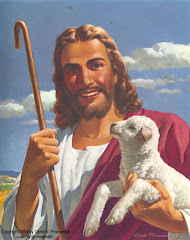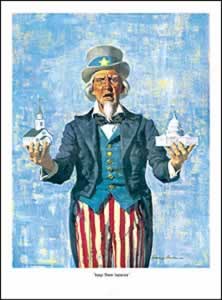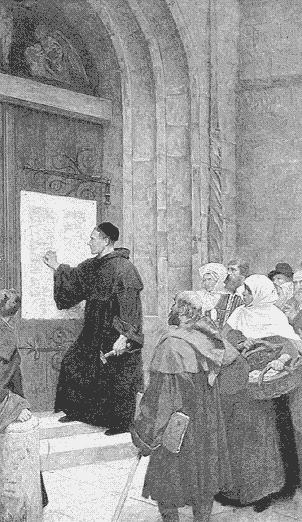In 1547, John Knox had wise words of advice regarding the Papacy:
Flee from Babel, if you do not want to partake in the destruction.i
The Pope is the world’s highest religious authority. However, this status has not been achieved on the basis of truth but on the basis of compromise. Moreover, the religious principles and doctrines of the Papacy constitute what the Bible calls the Babylon of the end times. The Second Vatican Council's Decrees on Ecumenism, given on November 21, 1964, proves that ecumenism is for the purpose of drawing all religions to Roman doctrine and authority:
For [Protestants] who believe in Christ and have been truly baptized are in communion with the Catholic Church even though this communion is imperfect. The differences that exist in varying degrees between them and the Catholic Church-whether in doctrine and sometimes in discipline, or concerning the structure of the Church-do indeed create many obstacles, sometimes serious ones, to full ecclesiastical communion. The ecumenical movement is striving to overcome these obstacles...
This is the way that, when the obstacles to perfect ecclesiastical communion have been gradually overcome, all Christians will at last, in a common celebration of the Eucharist, be gathered into the one and only Church in that unity which Christ bestowed on His Church from the beginning. We believe that this unity subsists in the Catholic Church as something she can never lose, and we hope that it will continue to increase until the end of time (emphasis added).
This is the way that, when the obstacles to perfect ecclesiastical communion have been gradually overcome, all Christians will at last, in a common celebration of the Eucharist, be gathered into the one and only Church in that unity which Christ bestowed on His Church from the beginning. We believe that this unity subsists in the Catholic Church as something she can never lose, and we hope that it will continue to increase until the end of time (emphasis added).
Protestantism and other world religions, by their own admission, have joined forces with the Roman Catholic Church, thus returning to the “Mother Church.” By submitting to Rome’s authority, these religions have become part of Babylon. By acknowledging the Pope’s leadership, they also acknowledge his doctrines (Romans 6:16).
And the beast was taken, and with him the false prophet that wrought miracles before him, with which he deceived them that had received the mark of the beast, and them that worshipped his image. These both were cast alive into a lake of fire burning with brimstone (Revelation 19:20).
The Second Angel’s Message
In Revelation 14, three angels give warnings to all the people of the earth. The Second Angel declares, “Babylon is fallen, is fallen, that great city, because she made all nations drink of the wine of the wrath of her fornication” (Revelation 14:8).Revelation 18 repeats the message of the Second Angel with the added admonition to separate from her:
Babylon the great is fallen, is fallen...And I heard another voice from heaven, saying, Come out of her, my people, that ye be not partakers of her sins, and that ye receive not of her plagues (Revelation 18:2,4).
Revelation 18 is a message of separation from Babylon. The ecumenical movement contains a message of unity based not on doctrinal truth or the Word, but on social issues, liturgy, and a watering down of fundamental principles of Christianity. Those that want to join together without the Word as their basis become a part of the end-time conglomerate—Babylon.
The reformers were willing to die for what they believed. They had studied the prophecies that clearly identify the Papacy as the Antichrist. Let us not reject the prophets and may the following words of Jesus not apply to us, "O Jerusalem, Jerusalem, thou that killest the prophets, and stonest them which are sent unto thee, how often would I have gathered thy children together, even as a hen gathereth her chickens under her wings, and ye would not" (Matthew 23:37).
The day is not distant, and it may be very near, when we shall all have to fight the battle of the Reformation over again. ii
i. Friedrich H. Brandes, John Knox, der reformator Schottlands (R. L. Friderichs, 1862). (German)
ii. Henry Grattan Guinness, Romanism and the Reformation (Hodder and Stoughton, 1887): 1.


















0 comments:
Post a Comment